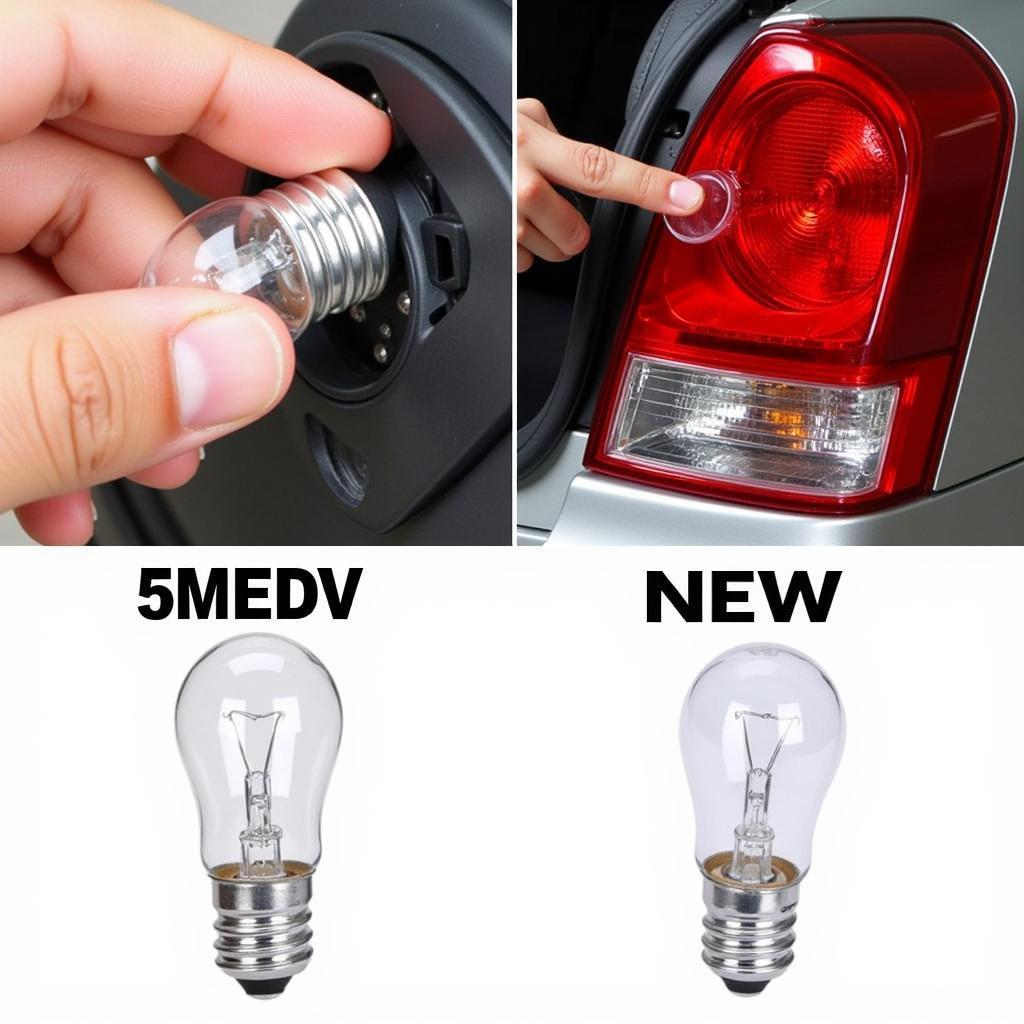When your winch brake doesn’t hold while winding in the opposite direction, it can be a frustrating and potentially dangerous situation. This issue, often described as “warn winch brake doesnt hold winding opposite direction,” points to a problem with the winch’s braking system, preventing it from holding the load securely. This article will delve into the common causes, troubleshooting steps, and solutions for this problem, providing you with the knowledge to address this issue safely and effectively.
Understanding Your Winch Braking System
Before diving into troubleshooting, it’s crucial to understand how your winch brake operates. Most winches utilize a dynamic or automatic braking system, which engages automatically when the winch motor stops. This system relies on friction within the winch drum or gearbox to hold the load. A malfunctioning brake can lead to uncontrolled unwinding, posing a safety risk to both you and your vehicle.
Common Causes of Winch Brake Failure
Several factors can contribute to a winch brake not holding when winding in reverse. These include:
- Worn Brake Components: Over time, the brake components, such as friction discs or pawls, can wear down, reducing their effectiveness.
- Grease or Oil Contamination: Grease or oil on the brake surfaces can significantly reduce friction, hindering the brake’s ability to hold.
- Improper Adjustment: Incorrectly adjusted brake components can lead to insufficient braking force.
- Damaged Gearbox: Internal damage to the winch gearbox can affect the braking mechanism.
- Electrical Issues: While less common, electrical problems can sometimes interfere with the brake’s engagement.
Troubleshooting Your Winch Brake
If you’re experiencing this issue, here are some steps to diagnose the problem:
- Inspect the Winch Drum and Brake Assembly: Look for visible signs of wear, damage, or contamination. Check for worn brake pads, broken springs, or excessive grease.
- Test the Winch in Both Directions: Observe the brake’s behavior when winding in both directions. If the brake only fails in one direction, it could indicate a specific directional issue within the gearbox.
- Check for Loose Connections: Inspect all electrical connections to ensure they are secure and free from corrosion.
- Listen for Unusual Noises: Grinding or clicking sounds during operation could suggest internal damage to the gearbox or brake components.
Solutions for a Failing Winch Brake
Depending on the diagnosed cause, the solution may range from simple cleaning and adjustment to more extensive repairs:
- Cleaning and Lubrication: Remove any grease or oil contamination from the brake surfaces using a suitable cleaner. Apply the correct type of winch grease sparingly to the appropriate areas.
- Brake Adjustment: Consult your winch’s manual for specific instructions on adjusting the brake. Proper adjustment is crucial for optimal braking performance.
- Component Replacement: Worn or damaged brake components should be replaced with genuine manufacturer parts.
- Gearbox Repair or Replacement: Internal gearbox damage often requires professional repair or replacement.
- Seek Professional Help: If you are unsure about any step or the problem persists, consult a qualified winch technician.
Remote Diagnostics and Software Solutions
In some cases, remote diagnostics and software solutions may be available for electronically controlled winches. These tools can help identify specific issues and even perform software updates to optimize winch performance. However, this is typically only applicable to winches with advanced electronic control systems.
“Regular maintenance is key to preventing winch brake problems,” advises John Miller, a certified automotive electrical technician specializing in winch systems. “Inspecting and cleaning your winch regularly can significantly extend its lifespan and ensure reliable performance.”
Conclusion
A winch with a failing brake is a safety hazard. Addressing the issue promptly is essential to prevent accidents. By understanding the common causes, troubleshooting steps, and available solutions outlined in this article, you can effectively resolve the “warn winch brake doesnt hold winding opposite direction” problem and ensure the safe and reliable operation of your winch. Regular maintenance, including inspection and lubrication, is crucial for preventing future brake problems and maximizing the lifespan of your winch.
FAQ
- What should I do if my winch brake fails while under load? Immediately stop using the winch and secure the load with alternative methods. Do not attempt to operate the winch further until the brake issue is resolved.
- How often should I inspect my winch brake? It’s recommended to inspect your winch brake before and after each use, as well as performing a more thorough inspection at least annually or as specified in your winch’s manual.
- Can I use any type of grease on my winch brake? No, it’s important to use the correct type of winch grease recommended by the manufacturer. Using the wrong type of grease can contaminate the brake and reduce its effectiveness.
- Is it safe to repair my winch brake myself? If you have mechanical experience and are comfortable working on your winch, you may be able to perform some repairs yourself. However, for complex issues or if you are unsure about any step, it’s always best to consult a qualified winch technician.
- How much does it typically cost to repair a winch brake? The cost of repair can vary depending on the specific problem and the labor rates in your area. A simple cleaning and adjustment might be relatively inexpensive, while a gearbox replacement could be significantly more costly.
- What are the signs of a worn-out winch brake? Common signs include slipping, grinding noises, difficulty holding a load, and visible wear on the brake components.
- How can I prevent my winch brake from failing? Regular inspection, cleaning, lubrication, and proper usage are essential for preventing winch brake problems.

